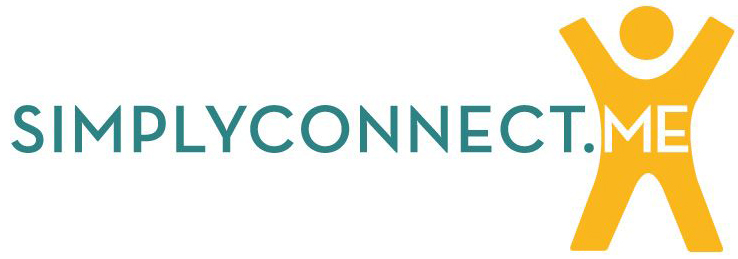Home > Our Work > Health & Housing > Housing Solutions Collaborative > Lutheran Services in Action
LUTHERAN SERVICES IN ACTION
The First in a Series of Case Studies
Addressing Housing Insecurity for Older Adults
Housing insecurity among older adults is a national crisis, with a staggering 11.2 million seniors dedicating over 30 percent of their income to shelter in 2021—a sharp rise from 20161. Without bold action, this challenge is likely to worsen as the baby boom generation ages.
Across the Lutheran Services in America network, members are tackling this challenge by developing and managing housing with services and supports. Using the example of Crossroads Senior Living at Bevo Mill (Crossroads), a forthcoming 64-unit affordable senior housing development (see photo), this case study highlights Lutheran Senior Services (LSS) in St. Louis and their unique, partnership-driven approach to expanding access to affordable senior housing with services.
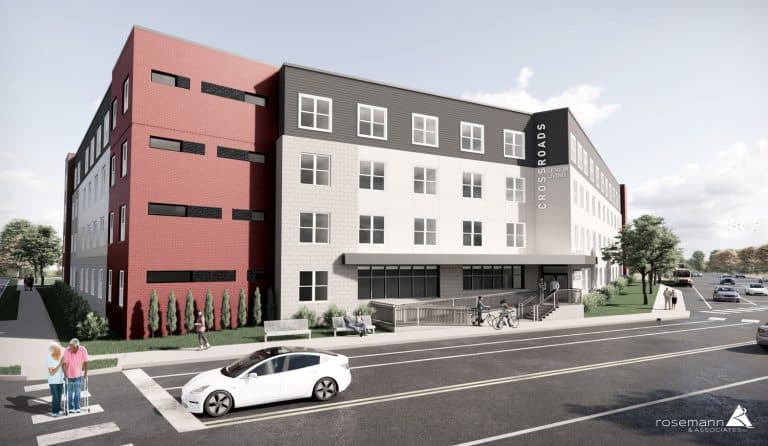
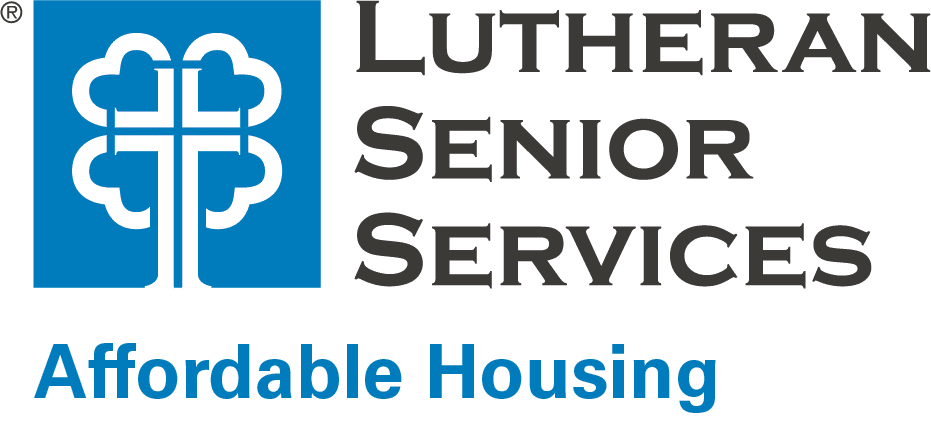
LSS’ leading role in this development is an example of how Lutheran health and human service agencies—including 20 organizations in the Lutheran Services in America Housing Solutions Collaborative—are leading with their commitment to vulnerable seniors and successfully shaping the future of senior affordable housing to address pressing community needs.
1 Joint Center for Housing Studies at Harvard University

The Lutheran Advantage in Addressing Housing and Health for Older Adults
A formidable, trusted force in St. Louis, Missouri, Lutheran Senior Services owns or manages 18 housing properties, including nine affordable senior housing properties and nine other senior Life Plan communities that offer independent living, assisted living, skilled nursing care and memory care. Established in 1858, LSS also provides home and community-based services that meet a wide range of needs to successfully allow residents to age in their homes. Their long-standing commitment to the St. Louis community is in both housing and health—to create caring communities where older adults can age with dignity and respect.
The opportunity to expand their affordable housing footprint in the Bevo Mill neighborhood began in 2018, when Midwest BankCentre donated an underutilized commercial property to Tower Grove CDC, a local community development corporation with strong neighborhood ties. Tower Grove CDC quickly recognized the need for specialized expertise and given the trusted, community-centered history of LSS, they forged a pivotal partnership that ultimately secured the project’s future and expanded the vision for Crossroads.
Initially, the partnership between Tower Grove CDC and LSS was built around their expertise in managing senior housing, including providing on-site supportive health services. The development opportunity offered clear mutual benefit. “We were really fortunate to be approached by a partner who was intimately connected to the Bevo Mill neighborhood,” said Adam Marles, President and CEO of LSS. “We always want to help as many seniors as possible live their best lives.”

It quickly became apparent to Tower Grove CDC leadership that to secure the necessary financing for the Crossroads development, LSS would need to play a more central role. After applying and being denied funding across three financing competitions, Tower Grove CDC worked with LSS to elevate their role in the project to a full partner and part owner of the property. Now, with LSS as the lead applicant, the partnership was able to apply for and secure a highly competitive $5.3 million federal Housing and Urban Development (HUD) 202 grant in October 2021. The 202 grant, is specifically designed to create affordable supportive housing for the elderly and was a pivotal moment of success.
With the HUD grant secured and LSS playing a larger role in financing, including a 75 percent ownership stake in the development, the momentum grew from there.
Additional fundraising efforts include over $1.3 million in federal and state credits, $2.2 million from the National Housing Trust Fund, and the approval for tax-exempt construction bonds totaling $9 million.
Given the long timeline and the complexity of housing development generally, Crossroads would hit one more snag. After nearly six years of planning and arranging the financing, the costs of materials and labor had risen. Now, the financing for the Crossroads development found itself $1 million short. LSS was undeterred and in mid-2023, they brought $1 million of their own capital to the table to complete the financing. The deal was a win-win for everyone involved. The investment alleviated pressure to reduce the development’s operating budget, preserving the vision of quality of housing and support for seniors. And at LSS’ insistence, the investment was deferred until the end of the 15-year compliance period, when LSS will then have the option to expand their ownership stake to 100 percent.
“They [Lutheran Senior Services] made up a gap [in funding] that we couldn’t have made up ourselves, so their partnership has been really critical to the success of the project.”
Sean Spencer
CEO of Tower Grove
In many ways, the Crossroads development represents the future of senior housing development, catalyzed through partnerships with multiple private and public funding streams, and tax credits being used to build needed housing in a sustainable way that also allows for on-site supportive services.
As Nikki Jennings, LSS’ Executive Director of Affordable Housing shared, “It used to be you could get one grant for housing and operate it under that one funding stream, but you just can’t get that anymore.”
Marles weighed in on the importance of this new partnership approach, “If we had tried to do this on our own, we might have gotten it done, but it would have taken much longer and cost much more.”
Serving Older Adults with Low-Incomes in a Diverse, Welcoming Community
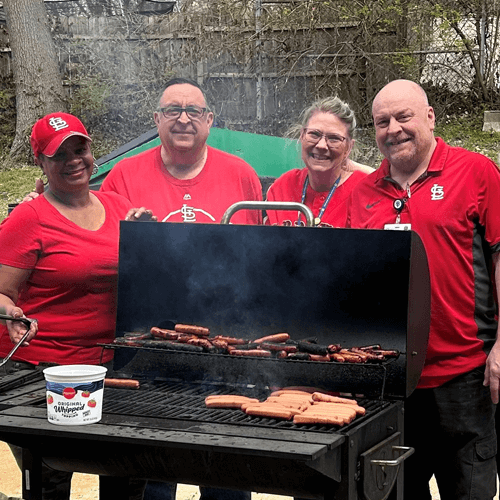
With financing secured, the construction at Crossroads is now poised to move forward, with 64 new units of affordable housing to meet obvious community needs. According to the 2020 American Community Survey, 19 percent of the population within a mile of Bevo Mill is below the poverty line. In addition, over 2,000 senior households in the area are qualified to receive rental assistance. The project addresses these needs directly by offering housing with rent scaled to individual incomes. At the same time, the building includes some market rate units, to support sustainability and meet a variety of community needs. Demand is already building for the units. “We already have a growing list of interest, and we haven’t yet broken ground,” said Jennings.
Beyond the numbers, the project is expected to be a catalyst for economic rejuvenation in the Bevo Mill neighborhood. While certain areas of St. Louis have experienced significant investment, according to LSS, neighborhoods like Bevo Mill have been overlooked. With a diverse population and a rich cultural tradition of welcome, Bevo Mill is currently serving as a hub for refugees relocating from present-day Bosnia and Croatia. With the addition of 64 households, it is expected to contribute to broader community revitalization for the local economy.
For the older adults who will call Crossroads home, these apartments offer more than just affordable housing—they represent a rare combination of affordability with tailored services and support designed for their unique needs. In addition to quality of life supports like fitness activities, older adults will have access to care management, such as medication management support and specialty support on a biennial basis, including podiatry. According to Jennings, the vision is to continually expand available health services and supports, especially behavioral health.
“When the motive isn’t profit, the outcomes tend to be different. We want it [the development] to be a place that people love to live.”
Adam Marles
CEO of Lutheran Senior Services
KEY INSIGHTS
Recognize the Material Benefits of Housing Collaboration:
- Partnership in affordable housing development provides a competitive edge in securing funding, as multi-sector collaboration is valued by funders like HUD who run point-based grant competitions.
- The expertise, trusted community presence and financial strength of a larger senior services organization, such as LSS, can play a critical role in affordable housing and health development.
Build Housing Partnerships on Shared Values:
- Successful partnerships require a durable relationship built on shared values. LSS and Tower Grove CDC were united by a common mission, to prioritize providing outstanding housing and supportive services to seniors over profit.
- A shared focus on creating a place seniors love to live, helps to foster supportive and enduring partnerships for affordable senior housing.
Take the Longview in Housing Development:
- The structure of LSS’ $1 million financial investment exemplifies a commitment to the long-term success of the project and strengthens equity available for future affordable housing initiatives.
- Crossroads Senior Living at Bevo Mill, like other affordable senior housing, can be a catalyst for broader community revitalization.
Conclusion
The Crossroads partnership between Lutheran Senior Services and Tower Grove CDC serves as a replicable example of effective Lutheran-led community development to strengthen housing security, health and opportunity for older adults.
As leaders in the Lutheran Services in America Housing Solutions Collaborative, both Marles and Jennings have advice for colleagues. “Be open to collaborations and seek out partners with the humility to also say, they don’t know it all,” said Marles. Jennings stressed the importance of bringing others into your orbit to sustain the work. “Stay the course! Operationally, I’ve got you, but housing development is a whole different world. Keep learning and using the resources you can find.”
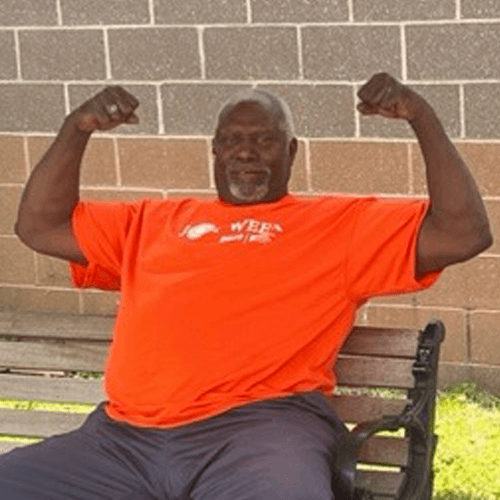
JOIN OUR HOUSING COLLABORATIVE
Through our Housing Solutions Collaborative, Lutheran Services in America unites 20 Lutheran social service organizations, partners and funders to advance housing solutions that strengthen housing security and advance health equity for people who need it most. The Collaborative prioritizes peer- and expert-led identification and advancement of creative partnerships, financing and policy that generate impactful and sustainable housing solutions for older adults, children and families and persons with disabilities. The Collaborative leverages the expertise of members in stewarding Housing and Urban Development (HUD), Medicaid and Medicare funding through effective community collaborations.
ACKNOWLEDGMENTS
We would like to express our sincere appreciation to Adam Marles, Ron Schaefer, and Nikki Jennings of Lutheran Senior Services, Sean Spencer of Tower Grove CDC, Nancy Rodney of Rosemann & Associates, and Jerry Burka of Old Orchard Consulting for sharing their time, expertise and insights to help create this case study.







